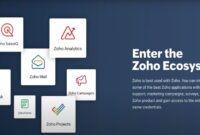CRM Administrator – Proficiency in the appropriate skill set is crucial for success in the dynamic work of a CRM Administrator. Proficiency in CRM Administration is distinguished by a distinctive combination of technical knowledge, strategic intelligence, and outstanding communication skills.
In an era characterized by swift technological progress, it is crucial to acquire proficiency in both fundamental and developing abilities. Analysing the essential skills required at different phases of your CRM career will assist you in prioritising your learning, matching with industry requirements, and excelling in efficiently managing customer connections.
The subsequent parts will examine the fundamental characteristics – including both technical and interpersonal skills – that constitute the foundation of a competent CRM Administrator, offering a thorough manual for anyone seeking to improve their expertise and maintain a competitive edge in this always changing industry.
A CRM Administrator Job Description outlines the key responsibilities and qualifications for an individual responsible for managing and maintaining a company’s customer relationship management (CRM) system.
The CRM Administrator is typically accountable for a wide range of tasks, including:
- Managing and maintaining the CRM system, ensuring that it is up-to-date, secure, and functioning optimally.
- Customizing and configuring the CRM system to meet the specific needs of the organization and its users.
- Providing training and support to users, enabling them to effectively utilize the CRM system and maximize its benefits.
- Monitoring and analyzing CRM data to identify trends, patterns, and areas for improvement.
- Collaborating with other departments to ensure that the CRM system is integrated with other business applications and processes.
The Ultimate Guide to Crafting a Job Description for a Skilled CRM Administrator
A CRM Administrator Job Description outlines the essential aspects of the role responsible for managing and maintaining a company’s customer relationship management (CRM) system. These key aspects include:
- System Management: Ensuring the CRM system is up-to-date, secure, and functioning optimally.
- Customization: Configuring the CRM system to meet the specific needs of the organization and its users.
- Training and Support: Providing training and support to users, enabling them to effectively utilize the CRM system.
- Data Analysis: Monitoring and analyzing CRM data to identify trends, patterns, and areas for improvement.
- Collaboration: Collaborating with other departments to ensure the CRM system is integrated with other business applications and processes.
- Technical Proficiency: Possessing a strong understanding of CRM systems, databases, and related technologies.
- Communication Skills: Effectively communicating with users, stakeholders, and vendors to gather requirements, resolve issues, and provide updates.
These aspects are crucial for the effective implementation and utilization of a CRM system. By managing the system, providing training and support, analyzing data, and collaborating with other departments, CRM Administrators play a vital role in improving customer relationships, streamlining business processes, and driving organizational success.
System Management
System Management is a fundamental aspect of the CRM Administrator job description, as it directly impacts the effectiveness and reliability of the CRM system. A CRM system that is up-to-date, secure, and functioning optimally enables users to access and utilize the system efficiently, leading to improved productivity and better customer service.
CRM Administrators are responsible for implementing and maintaining system updates, ensuring that the system is always running on the latest version. This ensures that users have access to the latest features and functionality, as well as the most up-to-date security patches. Regular updates also help to improve the overall stability and performance of the system, reducing the risk of downtime or data loss.
Security is another critical aspect of System Management. CRM systems store sensitive customer data, so it is essential to ensure that the system is secure from unauthorized access or cyber threats. CRM Administrators implement and maintain security measures such as access controls, data encryption, and disaster recovery plans to protect the confidentiality and integrity of customer data.
Finally, CRM Administrators monitor the system’s performance and take proactive steps to ensure that it is functioning optimally. This includes tasks such as capacity planning, performance tuning, and troubleshooting. By keeping the system running smoothly, CRM Administrators ensure that users have a positive and productive experience, which in turn leads to improved customer satisfaction and business outcomes.
In summary, System Management is a vital component of the CRM Administrator job description. By ensuring that the CRM system is up-to-date, secure, and functioning optimally, CRM Administrators play a crucial role in the success of the organization’s customer relationship management strategy.
Customization
Customization is a key aspect of the CRM Administrator job description because it enables the CRM system to be tailored to the unique needs of the organization and its users. A well-customized CRM system can streamline business processes, improve user adoption, and enhance the overall customer experience.
CRM Administrators work closely with stakeholders to gather requirements and understand their specific needs. They then configure the CRM system to meet those needs, creating custom fields, workflows, and dashboards. For example, a sales team may need a custom field to track the status of sales opportunities, while a customer service team may need a custom workflow to automate the process of resolving customer tickets.
By customizing the CRM system, CRM Administrators can ensure that it is aligned with the organization’s business objectives and that it provides users with the tools and information they need to be successful. This leads to improved productivity, better decision-making, and increased customer satisfaction.
In summary, Customization is an essential component of the CRM Administrator job description because it allows the CRM system to be tailored to the specific needs of the organization and its users. By understanding the importance of Customization, organizations can empower their CRM Administrators to create a system that supports their business goals and drives success.
Training and Support
Effective training and support play a critical role in the success of any CRM implementation. CRM Administrators are responsible for providing training and support to users, enabling them to effectively utilize the CRM system and maximize its benefits. This includes:
- Training: Developing and delivering training programs to ensure that users understand the functionality of the CRM system and how to use it effectively. This may include classroom training, online training, or on-the-job training.
- Support: Providing ongoing support to users, answering questions, troubleshooting issues, and resolving problems. This may include providing documentation, creating knowledge bases, or offering live support via phone, email, or chat.
- Adoption Strategy: Developing and implementing an adoption strategy to encourage users to use the CRM system and realize its benefits. This may include setting up user groups, creating incentives, or gamifying the system.
- Feedback Collection: Gathering feedback from users to identify areas for improvement and ensure that the CRM system is meeting their needs. This may include conducting surveys, holding focus groups, or reviewing system usage data.
By providing effective training and support, CRM Administrators help users to get the most out of the CRM system, which leads to improved productivity, better decision-making, and increased customer satisfaction.
Data Analysis
Data Analysis is an essential component of the CRM Administrator job description because it enables organizations to gain valuable insights into their customer relationships and business performance. By monitoring and analyzing CRM data, CRM Administrators can identify trends, patterns, and areas for improvement that can help the organization to make better decisions, improve customer service, and increase sales.
For example, a CRM Administrator might analyze data to identify which marketing campaigns are most effective, which products are most popular, or which customers are most likely to churn. This information can then be used to improve marketing strategies, product development, and customer retention efforts.
In addition, CRM Administrators can use data analysis to identify areas where the CRM system can be improved. For example, they might identify that users are having difficulty finding certain information in the system, or that certain workflows are inefficient. This information can then be used to make improvements to the system that will benefit all users.
Overall, Data Analysis is a critical component of the CRM Administrator job description because it enables organizations to gain valuable insights into their customer relationships and business performance. By monitoring and analyzing CRM data, CRM Administrators can help their organizations to make better decisions, improve customer service, and increase sales.
Collaboration
The CRM Administrator must collaborate to integrate the CRM system with other company systems and procedures to create a cohesive and efficient business environment. Effective collaboration allows the CRM system to share data and capabilities with marketing automation, e-commerce, and ERP systems, completing the customer journey and streamlining business operations.
Marketing teams may understand consumer behavior and create targeted campaigns by combining the CRM and marketing automation systems. Sales teams may track customer purchases and make targeted suggestions using e-commerce integration. Integration with the ERP system streamlines order processing and inventory management, boosting customer satisfaction.
CRM Administrators are crucial to this relationship. They collaborate with IT, marketing, sales, and customer service to understand their needs and configure the CRM system. They coordinate with system vendors and manage integrations to ensure data flow and process alignment.
In conclusion, collaboration is essential for the CRM Administrator to link the CRM system with other company applications and processes, providing a cohesive and efficient business environment. CRM Administrators boost data exchange, operations, and customer satisfaction by collaborating.
Technical Proficiency
Technical Proficiency is a crucial component of the CRM Administrator job description because it enables CRM Administrators to effectively manage and maintain the CRM system. A strong understanding of CRM systems, databases, and related technologies is essential for:
- System Configuration and Customization: CRM Administrators need to have a deep understanding of the CRM system’s architecture and functionality in order to configure and customize it to meet the specific needs of the organization. This includes creating custom fields, workflows, and reports, as well as integrating the CRM system with other business applications.
- Data Management and Analysis: CRM Administrators are responsible for managing and analyzing the data stored in the CRM system. This includes creating and maintaining data backups, as well as analyzing data to identify trends and patterns. A strong understanding of databases is essential for these tasks.
- Troubleshooting and Problem Resolution: CRM Administrators are often the first point of contact for users who are experiencing problems with the CRM system. A strong understanding of CRM systems and related technologies is essential for troubleshooting and resolving these problems.
In summary, Technical Proficiency is a critical component of the CRM Administrator job description because it enables CRM Administrators to effectively manage and maintain the CRM system. By possessing a strong understanding of CRM systems, databases, and related technologies, CRM Administrators can ensure that the CRM system is configured to meet the specific needs of the organization, that data is managed and analyzed effectively, and that problems are resolved quickly and efficiently.
Communication Skills
Communication Skills are essential for CRM Administrators as they play a vital role in ensuring that the CRM system meets the needs of the organization and its users. CRM Administrators must be able to effectively communicate with a variety of stakeholders, including users, stakeholders, and vendors, to gather requirements, resolve issues, and provide updates.
- Gathering Requirements: CRM Administrators must be able to effectively communicate with users and stakeholders to gather requirements for the CRM system. This includes understanding the business processes that the CRM system will support, as well as the specific needs of individual users. CRM Administrators must also be able to document these requirements in a clear and concise manner.
- Resolving Issues: CRM Administrators must be able to effectively communicate with users and vendors to resolve issues with the CRM system. This includes troubleshooting problems, identifying the root cause of issues, and developing and implementing solutions. CRM Administrators must also be able to keep users and stakeholders informed of the status of issues and provide updates on the progress of resolutions.
- Providing Updates: CRM Administrators must be able to effectively communicate with users and stakeholders to provide updates on the CRM system. This includes providing regular reports on the system’s performance, as well as notifying users of new features and updates. CRM Administrators must also be able to answer questions and provide support to users.
Overall, Communication Skills are essential for CRM Administrators to effectively perform their jobs. By being able to effectively communicate with a variety of stakeholders, CRM Administrators can ensure that the CRM system meets the needs of the organization and its users.
Conclusion
The CRM Administrator job description is a critical document for organizations that rely on CRM systems to manage their customer relationships. A well-written job description will help organizations to attract and hire qualified candidates who can effectively manage and maintain their CRM systems. By understanding the key responsibilities, qualifications, and skills required for a CRM Administrator, organizations can make informed decisions about hiring and developing these professionals.
As businesses increasingly rely on CRM systems to manage their customer relationships, the demand for qualified CRM Administrators is expected to grow in the coming years. By investing in a well-trained and experienced CRM Administrator, organizations can gain a competitive advantage and improve their overall customer experience.



